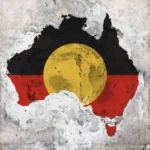Stray Australian Chopper in Beijing’s Waters Whips Up China Panic

“Off the South Korean coast, an Australian warship” has been helping enforce UN sanctions against” North Korea, the ABC reported on Wednesday. And it then explained that a helicopter from the ship, operating “over international waters” last week, “was intercepted by a Chinese military jet”.
China’s plane then fired flares towards the path of the Australian chopper, the national broadcaster continued, which was similar to two incidents in 2023, one of which involved flares fired toward a Canadian chopper, while an early incident saw Beijing fire flares at a US military plane.
Anthony Albanese deemed the incident “unprofessional” and “unacceptable” on Sunrise, and when host Karl Stefanovic pressed him, he conceded it was “completely unacceptable”, while, according to opposition leader Peter Dutton, the PM’s words hardly suffice, and he should call Beijing directly.
But while Australian defence minister Richard Marles warned about the risk to personnel, as did his Canadian counterpart late last year, others are querying whether the manoeuvres posed any harms at all, as well as asking why Five Eyes aircraft have been flying so close to the Chinese mainland.
Indeed, for those who’ve been watching Uncle Sam’s decadelong pivot to Asia with a view to warring on China, and successive Australian governments not only keen to join but increasingly permitting the US to dictate local foreign policy, the incident has simply been framed to achieve this goal.
Provocative on many levels
Assessing how the Australian media had “been going crazy over” the incident, Report on China’s Andy Boreham asserted the flare firing incident does sound “terrifying” if had occurred off the coast of Sydney, but not so much when considering it transpired a few hundred kilometres from Beijing.
The incident occurred in the Yellow Sea on 4 May, Boreham, a New Zealander living in Shanghai, advises, “nearly 10,000 kilometres away from Canberra”. And he further explained on Wednesday that the procedure is “fairly common”, while the concept of “international waters” is meaningless.
The intercept procedure applied by the People’s Liberation Army jet is approved by the US Federal Aviation Administration. And such procedure is applied to warn a foreign aircraft that it’s entering national airspace without permission, and flares ensure the unpermitted plane changes course.
Boreham accuses Marles of bending the truth in describing the manoeuvre as “unprofessional”, when it was the opposite. And he then outlines that there’s no such official term as international waters despite the local media repeatedly asserting that this is where the incident occurred.
“That term is not an official legal term,” Boreham continues. “It makes it sound as if anyone has the right to be there. To the contrary, the area of the Yellow Sea, where the incident is thought to have taken place, consists of large areas of China’s EEZ”, or its exclusive economic zone off its east coast.
The NZ reporter further explains that Marles would be well aware that while most nations don’t mind if a foreign plane strays into its EEZ, 17 nations require prior permission to do this, and one of them is China, and it’s also widely understood that Beijing responds in this manner when it occurs.
Reds under the bed
Former Australian foreign minister Bob Carr termed the phenomena that Boreham is describing as the nation’s “dramatic and scaremongering media” whipping the public up into a frenzy about the East Asian giant, as “China panic”.
Carr told a March 2023 anti-AUKUS meeting in Sydney’s Marrickville that he noted a distinct change in government rhetoric on China in 2017, which has since been followed by years of media reporting about a supposedly increasingly aggressive and threatening China.
“A deliberate China panic in the media. Where was it coming from? Who was driving it? Why were some journalists being favoured?” Carr asked, at a meeting where it was consistently asserted that the US ultimately wants to war on China as Beijing is threatening its global economic hegemony.
“I believe that the biggest factor in this China panic – driving this consistent massaging of the Australian media – were people in the Australian security agencies, who believed their counterparts in Washington were disappointed and fearful that we may not go all the way with the US in China.”
And fears about China have been increasingly propagated in the press ever since, which peaked last year with the Herald’s Red Alert series, as it brought together a panel of experts, all China hawks, to discuss how they considered Beijing was likely to attack Australia over the succeeding three years.
Of course, the press’ frenzy on China has been fuelled by the majors all the way, with former PM Scott Morrison warning of a 2020 cyberattack by a “state-based actor”, along with Dutton, then defence minister, explaining in 2021 that we are already involved in grey zone warfare with China.
And lawyers, politicians and other experts assert that Washington’s current attempt to extradite Australian citizen and ex-US marine Dan Duggan – to prosecute him in regard to training Chinese nationals at a flight school in South Africa over a decade ago – is too part of the designed panic.
Reds under the bed
For its part, China is none too pleased by what it considers a provocation. Foreign Ministry spokesperson Lin Jian told the globe on Tuesday that the chopper “deliberately flew within close range of China’s airspace in a provocative move that endangered China’s maritime and air security”.
The official noted that this occurred while enforcing UN sanctions. And he also said that the “Chinese military took necessary measures at the scene to warn and alert the Australian side”, so the way in which it was “handled was consistent with our laws and regulations, professional and safe”.
“China has lodged serious protests to the Australian side on its risky moves,” Lin continued, and he warned that his country urges “Australia to immediately stop the provocations and hypes to prevent misunderstanding and miscalculation.”
And Beijing was neither too impressed about AUKUS on announcement in September 2021, as it promised eight Australian nuclear-powered submarines that would be targeting China.
Although, despite new PM Albanese having taken to this plan with gusto, it now seems China can rest easy as there’s serious doubts to whether the boats will ever appear.
So, “should Australia be flying its military aircraft so far away from home,” Boreham posed to his audience on concluding his report on the matter, “or is it better to be a nice neighbour and not cause trouble?”







